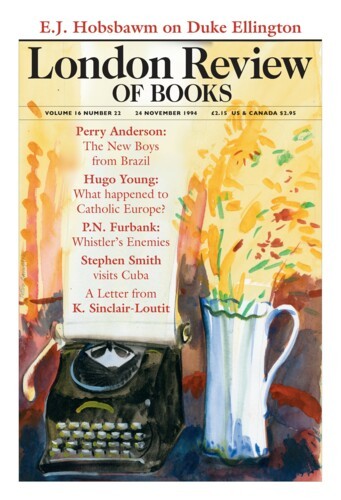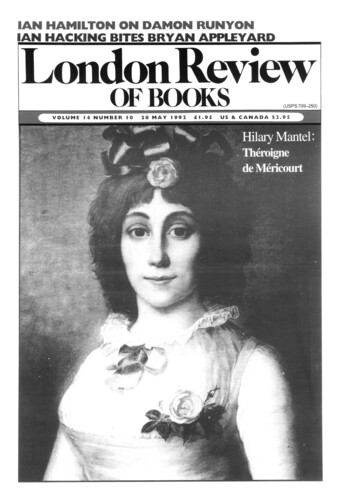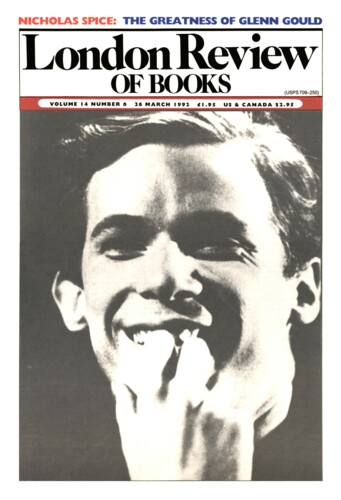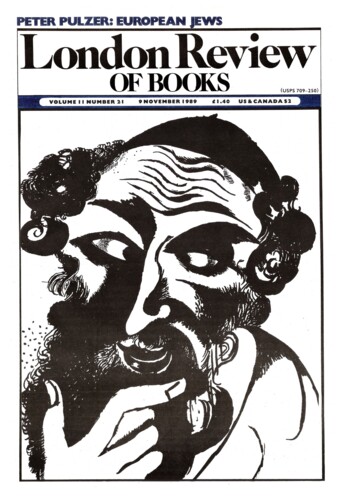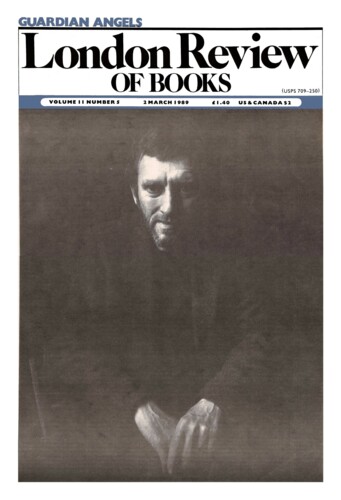The Right Stuff
Alan Ryan, 24 November 1994
David Selbourne’s The Principle of Duty is described on the dust-jacket as ‘the most comprehensive theory of civic society written in English since Locke’. ‘In English’ is wise: it excludes Montesquieu, Tocqueville, Durkheim, Hegel, Marx and Weber. The claim remains bizarre: Locke did not produce a theory of civil society, comprehensive or otherwise, but an account of our obligations to government or the state. The concept of civil society – the institutions and habits that sustain social, economic and family life – is an 18th-century discovery, articulated by the Scottish Enlightenment and naturalised in European liberal thought. If Selbourne’s publishers have anything definite in mind, it must be that The Principle of Duty puts the work of Adam Smith, Adam Ferguson, David Hume and Edmund Burke in the shade.’
